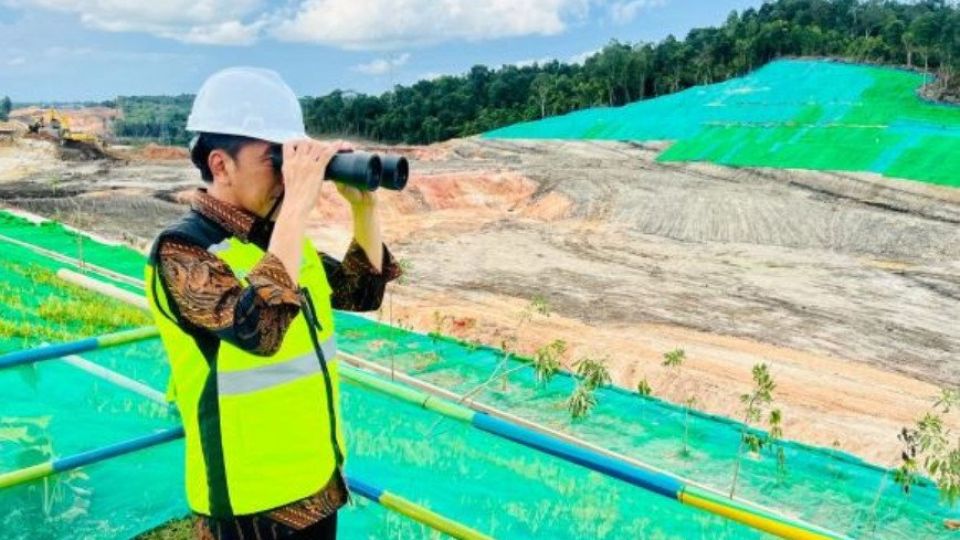March 10, 2023
JAKARTA – The government has issued a regulation to grant investors willing to help build Indonesia’s new capital city years of corporate income tax exemptions, decade-long permits for bringing in foreign workers and almost century-long land rights.
Those are just some of the incentives stipulated in Government Regulation No. 12/2023, which was issued on Thursday with the aim of giving investors the assurances and facilities they need to get engaged in the megaproject in East Kalimantan.
Nusantara Capital City (IKN) Authority head Bambang Susantono said the regulation proved the government was committed to realizing the project and would help speed up the development, be it with the support of domestic or foreign investors.
“This government regulation will provide attractive sets of policies with the maximum possible incentives within the confines of the law,” Bambang said in a statement on Thursday.
Implementing regulations for the new rules would be introduced soon by the Finance Ministry and the IKN Authority, he added.
Investment Minister Bahlil Lahadalia said in a statement on Thursday that the regulation did not offer incentives only to large entities but also to micro, small and medium enterprises (MSMEs).
Articles 28 and 29 stipulate that firms investing at least Rp 10 billion (US$647,000) in the project could apply for 100 percent tax holidays.
Developers of infrastructure and public works like toll roads, seaports, airports and housing could avail themselves of the incentives, as could firms engaged in economic development through the construction of shopping malls, hotels, convention centers and gas stations or in other sectors, such as services, software and cultivation.
The exemptions could last up to 30 years for applications until 2030, or up to 20 years for applications up to 2045.
Tax exemptions can also apply to projects around the new capital, or the “super hub”, but in this case they only apply to infrastructure and public works, according to articles 30 and 31.
Foreign multinational companies willing to move their head offices to the new capital can get a 100 percent income tax exemption for a decade and 50 percent for the next decade, Article 35 says.
Employees working in the new capital city are eligible for tax exemptions on income earned in the new city, in line with articles 50 to 52.
The regulation also waives import duties on goods needed for construction, development and industries in the project, based on articles 61 to 63. Meanwhile, research and development expenses are deductible for up to 350 percent for a certain period of time.
Regarding land permits, the government will allow investors to hold cultivation rights (HPL) for up to 95 years, while right-to-build (HGB) and right-to-use (HPL) permits can be valid for up to 80 years, and all may be extendable by the same period, according to articles 17 to 20.
The IKN Authority will remain the sole owner of the lands, which are classified as state assets.
The government is also waiving fees and levies for land right applications and transfers for a certain period of time.
Articles 22 and 23 state that businesses operating in the new capital are allowed to bring in foreign workers without the need to pay the government for employing foreigners, and their working and stay permits could be valid for a decade with the possibility of subsequent extension.
The sectors and industries foreign workers may enter in the new capital are subject to future or prevailing regulations.
“This clearly shows that the government is in a panic, so they’ve resorted to a fire sale of incentives,” Bhima Yudhistira, director of Center of Economic and Law Studies (Celios), told The Jakarta Post on Thursday.
Bhima went on to say that the incentives may not be effective, arguing that the real issues were the project’s continuity and the expected returns, which many investors were not yet convinced about.
“If investors still worry and doubt, the incentives will be in vain,” Bhima said.
Legal changes underway
To further secure investors’ trust, the government is reportedly finalizing a bill to revise Law No. 3/2022 on the new capital that will be sent to the House of Representatives in the upcoming sitting period.
The revision is to provide assurances to investors that whoever becomes the country’s next president, the megaproject will continue.
“Whoever the president may be, they cannot immediately dismiss the new capital project, unless Indonesia is facing fiscal conditions related to force majeure,” IKN Authority spokeswoman Diani Sadiawati told Kontan on March 1.


